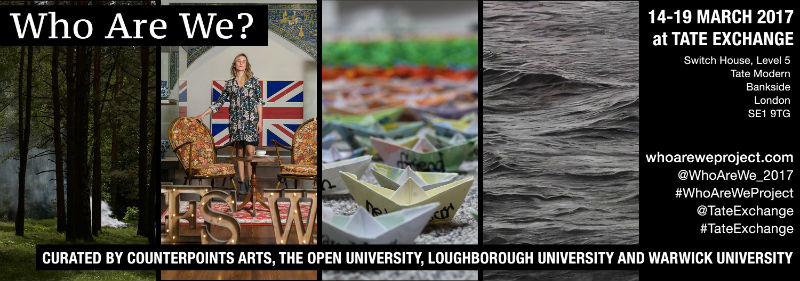
The referendum about EU membership in 2016 in Britain has once again sparked intense debate about the history and future of migration policy. This ties into wider debates on citizenship, participation and belonging in contemporary societies. The aim of this unit is to shed some light on the ways in which creativity and communication can be used to help our understanding of these issues of migration, citizenship, identity and belonging as well as the possibilities that art creates for expressing ourselves and for forming our collective identities and actions.
This collection focuses on the Who Are We? programme at the Tate Modern in March 2017, and an exhibition at the Migration Museum which took place in June 2016. Both of these involved collaborations with academics from The Open University.
Outline
What follows is an opportunity to explore ways in which academic work on citizenship, migration and the ethics and politics of the refugee crisis might be shared with wider audiences through creative expression. You can reflect on how research, arts, culture, audience participation and education might learn from each other.
You will have the opportunity to first explore a number of conversations from OU academics with artists and media practitioners whose work and engaged practice, uses visual, audio, and digital arts, film, photography, theatre and the spoken word.
You will then engage with some aspects of public participation during the ‘Who Are We?’ event, and learn how their interactions may give us insights that challenge stereotypes and representations communicated in mainstream media.
In addition, you will be able to explore an example of a collaboration between academics from Open University, Oxford University and the Migration Museum Project through an interactive exhibition about the Calais Refugee Camp entitled ‘Call me by my name’.
Both the Who Are We? and the Migration Museum project have been experiments in combining arts, research, learning and activism as different ways of approaching socially significant questions of the moment. This will be of interest to you if you are studying the arts or social sciences, particularly if you are interested in thinking about what participation means today, what national, supra-national and local identities mean, and how research is relevant for our everyday lives. This connects to many of the current and future modules in the Faculty of Arts and Social Sciences, but will be of interest to those of you with other study interests as well.





Rate and Review
Rate this article
Review this article
Log into OpenLearn to leave reviews and join in the conversation.
Article reviews